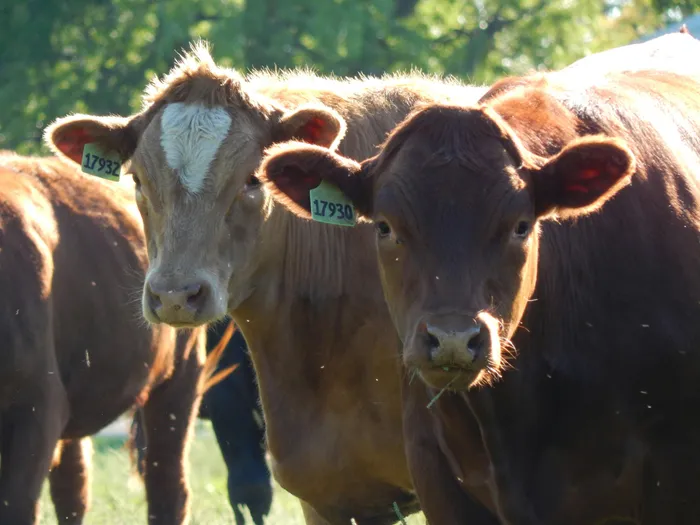Cattle auction linked to new cases of Foot and Mouth Disease in KZN
disease

The Ministry of Agriculture is concerned about the rising cases of Foot and Mouth Disease in KZN and have urged farmers to limit animal movement
Image: Unsplash Free Downloads
The Department of Agriculture has confirmed new positive cases of Foot and Mouth Disease (FMD) in livestock in the Newcastle and Bergville areas of KwaZulu-Natal. The outbreak has been traced to an auction held in Utrecht, northern KZN, in February, officials said.
The Ministry of Agriculture said that a “traceback epidemiological investigation” linked the outbreak to the auction and reiterated that the National Biosecurity and Movement Controls Control measures which were introduced in October 2022 remain in effect.
Joylene van Wyk the spokesperson for the Ministry of Agriculture said that records of all the animals that were at the auction were obtained and that “trace-forward exercises” were also being conducted.
“These include clinical examinations of animals on recipient farms to detect signs of FMD, as well as the collection of blood samples to determine prior exposure or vaccination. On one farm in Mpumalanga, cattle tested positive for FMD antibodies. Although these animals are not showing any clinical signs of the disease, the farm has been placed under quarantine and further investigations are ongoing,” she said.
The Ministry warned that the incubation period of FMD ranged from two to 14 days and that during this period animals could appear clinically healthy before showing any visible signs. “This highlights the critical importance of separating newly acquired animals from the resident herd for at least 28 days, even if a health attestation has been issued for the animals. Both the health attestation and the 28-day separation have been legal requirements since October 2022,” said Van Wyk.
As part of the control measures, owners of cloven-hoofed livestock must present a health declaration for the movement of the animals across South Africa. Newly introduced cattle, sheep, or goats must be isolated from resident herds for at least 28 days, she said.
The Ministry has also urged farmers to limit animal movement and exercise caution when procuring animals. “Any suspicious clinical symptoms (salivation, blisters in the mouth, limping or hoof lesions) must be reported to the local State Veterinarian immediately and such animals must not be moved under any circumstances. The Act prescribes certain control measures, like isolation and movement control, that are being enforced by Veterinary Services” the Ministry said.